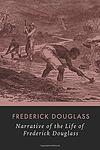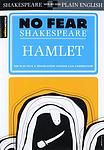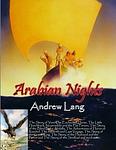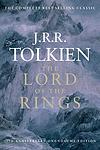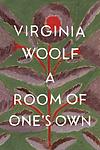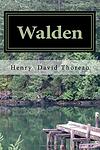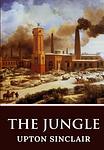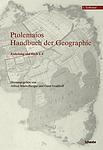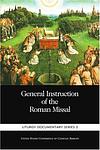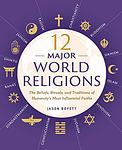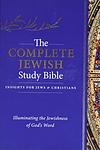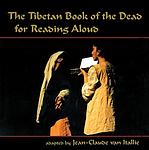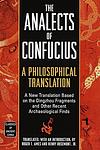The 50 Most Influential Books of All Time
This is one of the 284 lists we use to generate our main The Greatest Books list.
-
The Republic by Plato
"The Republic" is a philosophical text that explores the concepts of justice, order, and character within the context of a just city-state and a just individual. It presents the idea of a utopian society ruled by philosopher-kings, who are the most wise and just. The dialogue also delves into theories of education, the nature of reality, and the role of the philosopher in society. It is a fundamental work in Western philosophy and political theory.
-
Communist Manifesto by Karl Marx, Friedrich Engels
This influential political pamphlet advocates for the abolition of private property, the rights of the proletariat, and the eventual establishment of a classless society. The authors argue that all of history is a record of class struggle, culminating in the conflict between the bourgeoisie, who control the means of production, and the proletariat, who provide the labor. They predict that this struggle will result in a revolution, leading to a society where property and wealth are communally controlled.
-
Rights of Man by Thomas Paine
This influential work is a passionate defense of the French Revolution and a detailed examination of the concept of human rights. The author argues against the idea of monarchy and hereditary succession, contending that government should be a reflection of the people's will and that it should promote equality and social welfare. The book also explores the role of government in society, the nature of civil liberties, and the importance of a written constitution.
-
Common Sense by Thomas Paine
This influential pamphlet, published in 1776, played a crucial role in persuading the colonists of the Thirteen Colonies to declare independence from Britain. It argues for the democratic system of government, criticizes monarchy and hereditary succession, and advocates for the inherent rights and freedoms of individuals. The text uses plain language to make complex political ideas accessible to the average citizen, promoting the idea that the colonies have a right to be an independent nation.
-
Democracy in America by Alexis de Tocqueville
This influential book offers an in-depth analysis of the strengths and weaknesses of 19th century American democracy. The author, a French political thinker, provides a detailed examination of the democratic process and its impact on society, politics, and the economy. The work highlights the importance of civil society, local institutions, and the spirit of equality in ensuring the stability of democracy. It also delves into the dangers of majority tyranny, the potential for democratic despotism, and the critical role of religion and morality in sustaining a democratic nation.
-
The Prince by Niccolo Machiavelli
This classic work of political philosophy provides a pragmatic guide on political leadership and power, arguing that leaders must do whatever necessary to maintain authority and protect their states, even if it means compromising morality and ethics. The book explores various types of principalities, military affairs, the conduct of great leaders, and the virtues a prince should possess. It is known for its controversial thesis, which suggests that the ends justify the means in politics.
-
Narrative of the Life of Frederick Douglass by Frederick Douglass
This autobiographical book provides a first-hand account of the life of a former slave, chronicling his experiences from his early years in bondage, his struggle to teach himself to read and write, his daring escape to freedom, and his subsequent rise as a prominent abolitionist. The narrative is a powerful exploration of the physical and psychological effects of slavery, making it a significant work in American history.
-
On Liberty by John Stuart Mill
This influential philosophical work explores the concept of personal freedom and societal limits, arguing that individuals should have the right to act as they want, provided they do not harm others. The book elaborates on the nature and limits of the power that can be legitimately exercised by society over the individual, and champions individuality and nonconformity. It also discusses freedom of speech, asserting that all opinions should be openly expressed to prevent any single viewpoint from becoming dogma.
-
The Wealth of Nations by Adam Smith
This influential economic book presents a groundbreaking theory that argues for free market economies. The author posits that individuals acting in their own self-interest within a system of natural liberty will result in societal benefit, a concept often referred to as the "invisible hand" theory. The book also critiques mercantilism and explores concepts such as the division of labor, productivity, and free markets. It is widely considered one of the foundational texts in the field of economics.
-
Orientalism by Edward W. Said
This book is a critical examination of Western attitudes towards the East, particularly the Middle East, and how these attitudes have shaped and continue to shape Western policies and perceptions. The author argues that the West has a long history of viewing the East as the "other," exotic and inferior, and that this view has been institutionalized through academic disciplines, literature, and media. This "Orientalism," as the author calls it, has served to justify colonialism and imperialism, and continues to influence Western attitudes and policies towards the East today.
-
The Canterbury Tales by Geoffrey Chaucer
The Canterbury Tales is a collection of 24 stories that follows a group of pilgrims traveling from London to Canterbury to visit the shrine of Saint Thomas Becket. Told in Middle English, the tales are narrated by a diverse group of pilgrims, including a knight, a miller, a reeve, and a pardoner, who share their stories to pass the time during their journey. The tales, which range from chivalrous romances to bawdy fabliaux, provide a colorful, satirical, and critical portrayal of 14th century English society.
-
The Divine Comedy by Dante Alighieri
In this epic poem, the protagonist embarks on an extraordinary journey through Hell (Inferno), Purgatory (Purgatorio), and Paradise (Paradiso). Guided by the ancient Roman poet Virgil and his beloved Beatrice, he encounters various historical and mythological figures in each realm, witnessing the eternal consequences of earthly sins and virtues. The journey serves as an allegory for the soul's progression towards God, offering profound insights into the nature of good and evil, free will, and divine justice.
-
First Folio by William Shakespeare
This collection is a compilation of 36 plays by a renowned English playwright, published seven years after his death. It includes comedies, histories, and tragedies, some of which had never been published before. Notable works in the compilation include "Macbeth," "Julius Caesar," "Twelfth Night," "The Tempest," and "As You Like It." The collection is considered one of the most influential books ever published in the English language, as it preserved many of the playwright's works that might have otherwise been lost.
-
Moby Dick by Herman Melville
The novel is a detailed narrative of a vengeful sea captain's obsessive quest to hunt down a giant white sperm whale that bit off his leg. The captain's relentless pursuit, despite the warnings and concerns of his crew, leads them on a dangerous journey across the seas. The story is a complex exploration of good and evil, obsession, and the nature of reality, filled with rich descriptions of whaling and the sea.
-
Nineteen Eighty Four by George Orwell
Set in a dystopian future, the novel presents a society under the total control of a totalitarian regime, led by the omnipresent Big Brother. The protagonist, a low-ranking member of 'the Party', begins to question the regime and falls in love with a woman, an act of rebellion in a world where independent thought, dissent, and love are prohibited. The novel explores themes of surveillance, censorship, and the manipulation of truth.
-
Brave New World by Aldous Huxley
Set in a dystopian future, the novel explores a society where human beings are genetically bred and pharmaceutically conditioned to serve in a ruling order. The society is divided into five castes, each with its specific roles. The narrative follows a savage who rejects the norms of this new world order and struggles to navigate the clash between the values of his upbringing and the reality of this technologically advanced, emotionless society. His resistance prompts a deep examination of the nature of freedom, individuality, and happiness.
-
The Iliad by Homer
This epic poem focuses on the final weeks of the Trojan War, a conflict between the city of Troy and the Greek city-states. The story explores themes of war, honor, wrath, and divine intervention, with a particular focus on the Greek hero Achilles, whose anger and refusal to fight have devastating consequences. The narrative also delves into the lives of the gods, their relationships with humans, and their influence on the course of events.
-
The Odyssey by Homer
This epic poem follows the Greek hero Odysseus on his journey home after the fall of Troy. It takes Odysseus ten years to reach Ithaca after the ten-year Trojan War. Along the way, he encounters many obstacles including mythical creatures, divine beings, and natural disasters. Meanwhile, back in Ithaca, his wife Penelope and son Telemachus fend off suitors vying for Penelope's hand in marriage, believing Odysseus to be dead. The story concludes with Odysseus's return, his slaughter of the suitors, and his reunion with his family.
-
Don Quixote by Miguel de Cervantes
This classic novel follows the adventures of a man who, driven mad by reading too many chivalric romances, decides to become a knight-errant and roam the world righting wrongs under the name Don Quixote. Accompanied by his loyal squire, Sancho Panza, he battles windmills he believes to be giants and champions the virtuous lady Dulcinea, who is in reality a simple peasant girl. The book is a richly layered critique of the popular literature of Cervantes' time and a profound exploration of reality and illusion, madness and sanity.
-
In Search of Lost Time by Marcel Proust
This renowned novel is a sweeping exploration of memory, love, art, and the passage of time, told through the narrator's recollections of his childhood and experiences into adulthood in the late 19th and early 20th century aristocratic France. The narrative is notable for its lengthy and intricate involuntary memory episodes, the most famous being the "madeleine episode". It explores the themes of time, space and memory, but also raises questions about the nature of art and literature, and the complex relationships between love, sexuality, and possession.
-
Madame Bovary by Gustave Flaubert
Madame Bovary is a tragic novel about a young woman, Emma Bovary, who is married to a dull, but kind-hearted doctor. Dissatisfied with her life, she embarks on a series of extramarital affairs and indulges in a luxurious lifestyle in an attempt to escape the banalities and emptiness of provincial life. Her desire for passion and excitement leads her down a path of financial ruin and despair, ultimately resulting in a tragic end.
-
One Thousand and One Nights by Unknown
This is a collection of Middle Eastern folk tales compiled during the Islamic Golden Age. The stories are told by a young woman, who must weave a new tale each night for her husband, a king, to delay her execution. The tales are filled with magic, adventure, love, and betrayal, and include well-known stories such as "Aladdin's Wonderful Lamp", "Ali Baba and the Forty Thieves", and "The Seven Voyages of Sinbad the Sailor".
-
One Hundred Years of Solitude by Gabriel Garcia Marquez
This novel is a multi-generational saga that focuses on the Buendía family, who founded the fictional town of Macondo. It explores themes of love, loss, family, and the cyclical nature of history. The story is filled with magical realism, blending the supernatural with the ordinary, as it chronicles the family's experiences, including civil war, marriages, births, and deaths. The book is renowned for its narrative style and its exploration of solitude, fate, and the inevitability of repetition in history.
-
War and Peace by Leo Tolstoy
Set in the backdrop of the Napoleonic era, the novel presents a panorama of Russian society and its descent into the chaos of war. It follows the interconnected lives of five aristocratic families, their struggles, romances, and personal journeys through the tumultuous period of history. The narrative explores themes of love, war, and the meaning of life, as it weaves together historical events with the personal stories of its characters.
-
The Tale of Genji by Murasaki Shikibu
"The Tale of Genji" is a classic work of Japanese literature from the 11th century, often considered the world's first novel. The story revolves around the life of Genji, the son of an emperor, exploring his political rise, romantic relationships, and the complex court life of the Heian era. The novel is celebrated for its detailed characterization and its analysis of the different forms of love.
-
Uncle Tom's Cabin by Harriet Beecher Stowe
This renowned novel provides a harsh critique of American slavery through the story of Uncle Tom, a long-suffering black slave. The narrative follows Tom as he is sold and transported to the harsh South, encountering a variety of characters, both kind and cruel. The novel powerfully explores themes of faith, the immorality of slavery, and the concept of humanity, ultimately contributing to the abolitionist cause and leaving a significant impact on the American perception of slavery.
-
Crime and Punishment by Fyodor Dostoevsky
A young, impoverished former student in Saint Petersburg, Russia, formulates a plan to kill an unscrupulous pawnbroker to redistribute her wealth among the needy. However, after carrying out the act, he is consumed by guilt and paranoia, leading to a psychological battle within himself. As he grapples with his actions, he also navigates complex relationships with a variety of characters, including a virtuous prostitute, his sister, and a relentless detective. The narrative explores themes of morality, redemption, and the psychological impacts of crime.
-
Things Fall Apart by Chinua Achebe
This novel explores the life of Okonkwo, a respected warrior in the Umuofia clan of the Igbo tribe in Nigeria during the late 1800s. Okonkwo's world is disrupted by the arrival of European missionaries and the subsequent clash of cultures. The story examines the effects of colonialism on African societies, the clash between tradition and change, and the struggle between individual and society. Despite his efforts to resist the changes, Okonkwo's life, like his society, falls apart.
-
Faust by Johann Wolfgang von Goethe
The book is a tragic play in two parts that tells the story of a scholarly man named Faust, who becomes dissatisfied with his life and makes a pact with the devil, Mephistopheles. In exchange for unlimited knowledge and worldly pleasures, Faust agrees to give his soul to Mephistopheles after death. The narrative explores themes of ambition, despair, love, and redemption, ultimately leading to Faust's salvation.
-
Beloved by Toni Morrison
This novel tells the story of a former African-American slave woman who, after escaping to Ohio, is haunted by the ghost of her deceased daughter. The protagonist is forced to confront her repressed memories and the horrific realities of her past, including the desperate act she committed to protect her children from a life of slavery. The narrative is a poignant exploration of the physical, emotional, and psychological scars inflicted by the institution of slavery, and the struggle for identity and self-acceptance in its aftermath.
-
The Lord of the Rings by J. R. R. Tolkien
This epic high-fantasy novel centers around a modest hobbit who is entrusted with the task of destroying a powerful ring that could enable the dark lord to conquer the world. Accompanied by a diverse group of companions, the hobbit embarks on a perilous journey across Middle-earth, battling evil forces and facing numerous challenges. The narrative, rich in mythology and complex themes of good versus evil, friendship, and heroism, has had a profound influence on the fantasy genre.
-
The Diary of a Young Girl by Anne Frank
This book is a real-life account of a young Jewish girl hiding from the Nazis during World War II, written in diary format. The girl and her family are forced to live in a secret annex in Amsterdam for two years, during which she writes about her experiences, fears, dreams, and the onset of adolescence. The diary provides a poignant and deeply personal insight into the horrors of the Holocaust, making it a powerful testament to the human spirit.
-
A Vindication of the Rights of Woman by Mary Wollstonecraft
This influential work from the late 18th century argues passionately for the education and societal recognition of women. The author asserts that women are not naturally inferior to men, but appear to be only because they lack education. She suggests that both men and women should be treated as rational beings and imagines a social order founded on reason. The book is considered one of the earliest works of feminist philosophy.
-
The Second Sex by Simone de Beauvoir
This influential work explores the treatment and perception of women throughout history, arguing that women have been repressed and defined only in relation to men. The author presents a detailed analysis of women's roles in society, family, work, and in the creation of their own identities. She discusses the concept of 'the other' and how this has been used to suppress women, while also examining the biological, psychological, and societal impacts of this oppression. The book is a seminal text in feminist theory, challenging traditional notions of femininity and calling for equality and freedom for women.
-
A Room of One's Own by Virginia Woolf
This book is an extended essay that explores the topic of women in fiction, and the societal and economic hindrances that prevent them from achieving their full potential. The author uses a fictional narrator and narrative to explore the many difficulties that women writers faced throughout history, including the lack of education available to them and the societal expectations that limited their opportunities. The central argument is that a woman must have money and a room of her own if she is to write fiction.
-
Walden by Henry David Thoreau
This work is a reflection upon simple living in natural surroundings, inspired by the author's two-year experience of living in a cabin near a woodland pond. Filled with philosophical insights, observations on nature, and declarations of independence from societal expectations, the book is a critique of the complexities of modern civilization and a call to appreciate the beauty and simplicity of the natural world. It explores themes such as self-reliance, solitude, and the individual's relationship with nature.
-
A Dictionary of the English Language by Samuel Johnson
This comprehensive work is an extensive dictionary of the English language, providing detailed definitions, etymology, and usage examples for a wide range of words. It was one of the earliest dictionaries to approach language in this systematic and scholarly way, and it played a significant role in standardizing English spelling and usage. This dictionary is not only a linguistic resource but also a reflection of 18th century intellectual life, as it includes numerous quotations from notable authors and thinkers of the time.
-
Critique of Pure Reason by Immanuel Kant
This philosophical work delves into the nature and limits of human knowledge, proposing that while our knowledge begins with experience, it doesn't necessarily arise out of experience. The author argues that pure reason itself has the ability to contribute to our knowledge and understanding of the universe. He further explores the concept of metaphysics, asserting that while it is possible, it is also severely limited by the human mind's ability to comprehend it.
-
The Jungle by Upton Sinclair
This novel exposes the harsh conditions and exploited lives of immigrants in the United States in Chicago and similar industrialized cities. The protagonist, a young Lithuanian immigrant, works in the meatpacking industry and experiences the extreme poverty, poor working conditions, and lack of social services. The narrative explores the corruption of the American meatpacking industry in the early 20th century and the hardships faced by the working class, leading to significant public outcry that contributed to the passage of the Pure Food and Drug Act.
-
Native Son by Richard Wright
This novel tells the story of Bigger Thomas, a young African-American man living in Chicago's South Side during the 1930s. Bigger's life takes a tragic turn when he accidentally kills a young white woman. The incident leads to his arrest and trial, revealing the deep-seated racial prejudices and injustices prevalent in American society at the time. The narrative explores themes of poverty, systemic racism, fear, and the effects of oppression.
-
Principia Mathematica by Isaac Newton
This seminal work is a comprehensive exploration of classical physics, laying the groundwork for much of modern science. The author presents his three laws of motion and law of universal gravitation, effectively bridging the gap between the abstract world of mathematics and real-world phenomena. The book also delves into the principles of calculus, a mathematical discipline the author significantly developed. This work has had a profound influence on the scientific understanding of the physical universe.
-
Relativity by Albert Einstein
This book is a comprehensive introduction to the theory of relativity written by the physicist who developed the theory. It covers both the special and general theories of relativity and provides an accessible explanation of the physics involved, including the nature of light, time, and gravity. The book also discusses the philosophical implications of relativity and its impact on our understanding of reality. Written for a general audience, it aims to make complex scientific concepts understandable to non-experts.
-
On the Origin of Species by Charles Darwin
This groundbreaking work presents the theory of evolution, asserting that species evolve over generations through a process of natural selection. The book provides a comprehensive explanation of how the diversity of life on Earth developed over millions of years from a common ancestry. It includes detailed observations and arguments to support the idea that species evolve by adapting to their environments, challenging the prevailing belief of the time that species were unchanging parts of a designed hierarchy.
-
Silent Spring by Rachel Carson
This influential environmental science book presents a detailed and passionate argument against the overuse of pesticides in the mid-20th century. The author meticulously describes the harmful effects of these chemicals on the environment, particularly on birds, hence the metaphor of a 'silent spring' without bird song. The book played a significant role in advancing the global environmental movement and led to a nationwide ban on DDT and other pesticides in the United States.
-
Geography by Ptolemy
"Geography" is a seminal work in the field of geography and cartography, written by a renowned ancient Greek scholar. The book provides comprehensive details about the world as known during the Roman Empire. It contains a wealth of information about various countries, cities, landmarks, and geographical features, along with instructions on how to create maps. The author also introduces the concept of longitude and latitude, making this work a significant contribution to the field of geography.
-
The Interpretation of Dreams by Sigmund Freud
This groundbreaking work explores the theory that dreams are a reflection of the unconscious mind and a means of understanding our deepest desires, anxieties, and fantasies. The book delves into the symbolism of dreams and their connection to repressed thoughts and experiences, proposing that they are a form of wish fulfillment. The author also introduces the concept of "dream work," which transforms these unconscious thoughts into the content of dreams, and discusses various methods of dream interpretation.
-
The Bible by Unknown
The Bible is the central religious text of Christianity, comprising the Old and New Testaments. It features a diverse collection of writings including historical narratives, poetry, prophecies, and teachings. These texts chronicle the relationship between God and humanity, detail the life, death, and resurrection of Jesus Christ, and follow the early Christian church. Considered divinely inspired by believers, it serves as a foundational guide for faith and practice, influencing countless aspects of culture and society worldwide.
-
The Quran by Unknown
This book is a compilation of the religious text of Islam, believed by Muslims to be a revelation from God. It is divided into chapters, which are then divided into verses. The text discusses various aspects of life and provides guidance on morality, ethics, law, and personal conduct. It also includes narratives of several prophets, their lives, and their interactions with their communities. The book is considered the ultimate source of spiritual guidance for Muslims worldwide.
-
The Hebrew Bible by Jewish scripture
This book is a comprehensive collection of Jewish scriptures, also known as the Hebrew Bible or Tanakh, which is divided into three sections: the Torah (Pentateuch), the Nevi'im (Prophets), and the Ketuvim (Writings). It includes historical accounts, laws, ethical guidelines, songs, prayers, wisdom literature, and prophecies, providing the religious, moral, and social foundations for Judaism and, by extension, Christianity and Islam. The book is considered sacred and authoritative by Jews worldwide.
-
The Tibetan Book of the Dead: Awakening Upon Dying by Padmasambhava, Karma Lingpa
"The Tibetan Book of the Dead: Awakening Upon Dying" is a spiritual guide that explores the stages of death and afterlife from a Tibetan Buddhist perspective. It provides instructions for the dying and the living, offering meditative and contemplative techniques to prepare for death, navigate the intermediate state (Bardo), and achieve liberation. The book serves as a manual for understanding the transition from life to death, making it less of a fearful experience and more of a conscious, spiritual journey.
-
Analects by Confucius
The Analects is a collection of sayings and teachings attributed to the Chinese philosopher Confucius and his disciples. The book emphasizes the importance of personal and societal morality, filial piety, and the cultivation of knowledge and virtue. Confucius stresses the importance of leading by example and treating others with respect and kindness. The Analects has had a profound impact on Chinese culture and philosophy, and its teachings continue to be studied and applied today.
Open Education Database, 51 Books
The "The 50 Most Influential Books of All Time," as compiled by the Open Education Database, celebrates literature's unparalleled power to inspire, educate, and transform individuals and societies at large. This diverse collection spans various genres, time periods, and subjects, illustrating the profound impact that written words can have on humanity's evolution. These books have been carefully selected for their significant contributions in shaping political and governmental landscapes, setting new benchmarks in literary excellence, challenging and reshaping societal norms, and advancing academic and intellectual discourse in science, religion, and beyond.
Added 2 months ago.
This list has a weight of 46%. To learn more about what this means please visit the Rankings page.
Here is a list of what is decreasing the importance of this list:
- Voters: no voter information
- List: criteria is not just "best/favorite"
If you think this is incorrect please e-mail us at [email protected].






